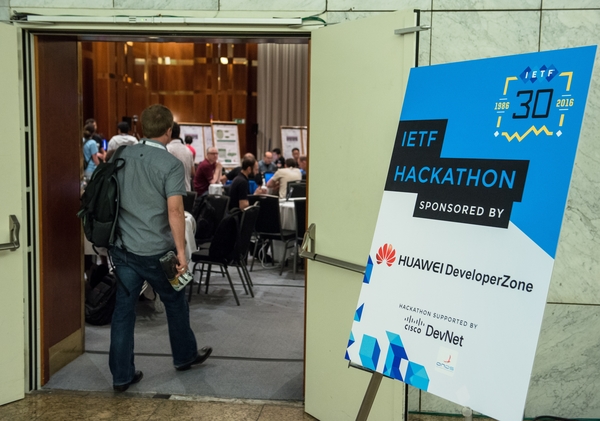
The IETF Hackathon in Berlin, held July 16-17, was the biggest and most impactful IETF Hackathon to date. A record 158 participants registered, and even more showed up over the course of the weekend to work on more than 20 projects spanning at least 15 different technologies. This hackathon was the first IETF hackathon for almost half of the participants, and it was the first IETF experience or any sort for more than 25 individuals. This speaks very well of how the hackathon is doing in terms of meeting its objective of introducing more people to the IETF and making their first experience a positive one.
Goals of IETF Hackathon
- Advance pace and relevance of IETF standards activities by bringing the speed and collaborative spirit of open source development into the IETF (e.g. targeted standards areas where ideas are flushed out, sample code is produced, and useful utilities are developed)
- Bring developers and young people into IETF and get them exposed to and interested in IETF
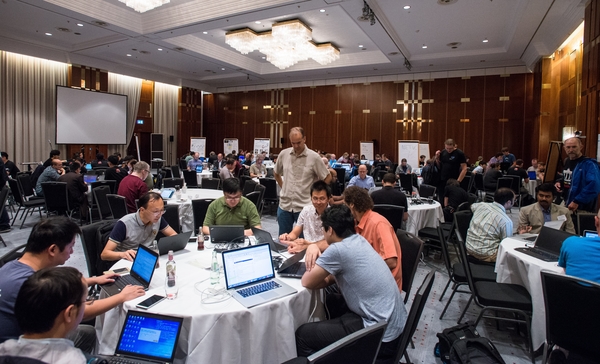
This was the 5th time a hackathon was held in conjunction with an IETF meeting, and as done previously, it was held over a weekend that marked the start of a full week of IETF activities. By the time the doors officially opened at 9am on Saturday, the room was already over half full with a mix of project champions eager to share posters describing their projects and participants seeking the best match for their interests and skills.

Project posters were a new component of the hackathon. They were used in place of the short presentations on each project that typically occurred at the start of the hackathon. The reason being that even when presentations are restricted to no more than 5 minutes, having 20 or more of them simply eats up to much valuable time that could have been spent hacking. Posters ranged from professional looking masterpieces to a few words scribbled haphazardly on a flip chart, with all serving the intended purpose, and ad-hoc Q&A providing any necessary clarifications. An unofficial survey of participants validated the hypothesis that the posters were indeed a welcome change.
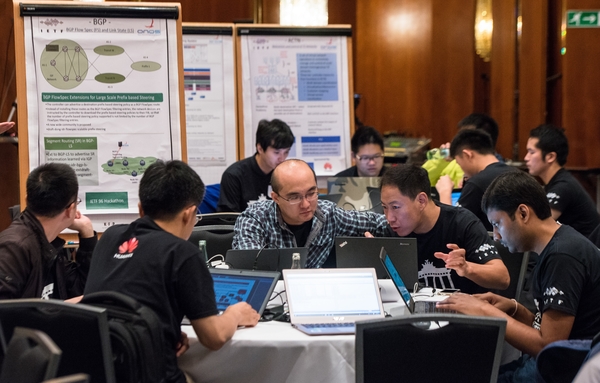
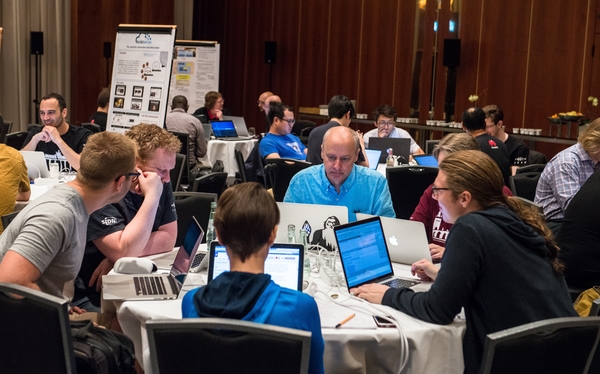
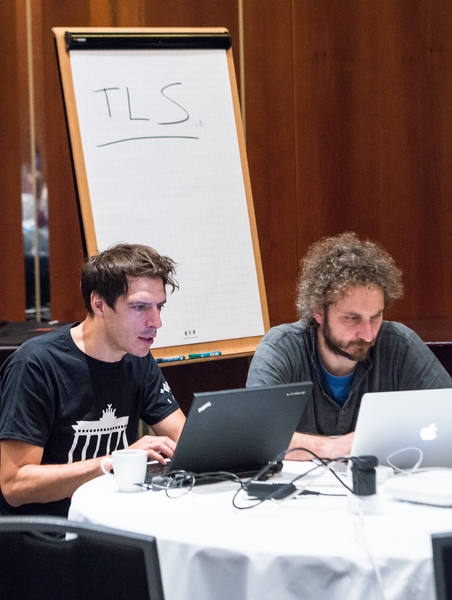
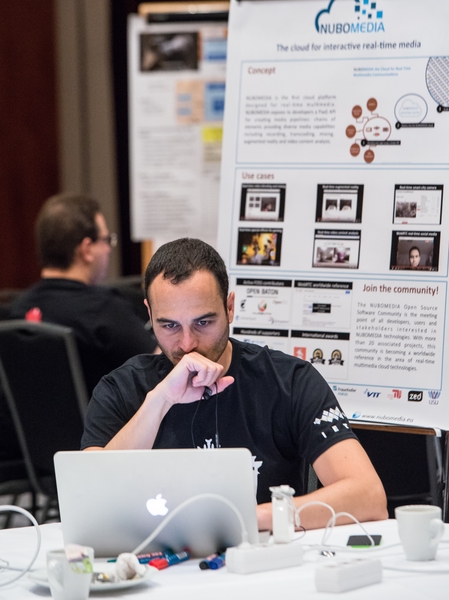
Teams formed very quickly, and additional participants were welcomed as they trickled in the rest of Saturday and even Sunday morning. A competitive spirit was clearly evident but the collaborative spirit aimed at moving IETF work forward with great speed, quality, and relevance through running code and open source software was much greater. The teams worked tirelessly, with a coffee machine, lunch, cookies, , dinner, and beer providing more than adequate fuel and incentive to remain on task. Many participants finally agreed to leave Saturday at 10:15pm to allow hotel staff to lock up and go home. When the doors reopened Sunday morning, many got right back to work even before the officially advertised 9am start time.
By early Sunday afternoon, teams switched gears a bit to pull together brief presentations that answered these questions:
- What problem you are solving?
- How do you plan to solve it?
- What did you achieve, highlighting benefits to IETF work and communities of interest?
The presentations were not only for fellow hackers in the room and for judges with the difficult task of selecting winners, but for streaming live and recording for the benefit of those not able to join the actual event. And the winners were:
Best Overall
- ILA - IPv6 Identifier Locator Addressing
- Implementing draft-herbert-nvo3-ila-02
- Data plane method to implement network virtualization without encapsulation and its related overhead
- Implemented ILA as VPP plugin
- Interop between VPP in FD.io and Linux kernel space fast data path in ioVisor
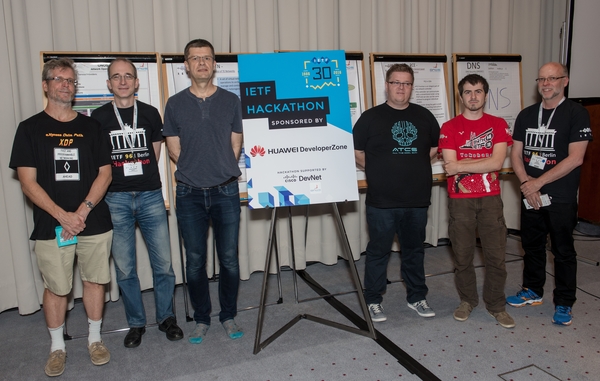
Best Feedback to Working Groups
Most Important to IETF
Best Interop Testing for Imminent Deployment
- TLS 1.3
- Development and interop testing across various crypto libraries, e.g. NSS, Apache, Firefox, ProtoTLS, MiTLS, BoringSSL

Most Progress during the Hackathon
Best Ecosystem Engagement
- DNS / DNSSEC / DPRIVE / DANE
- DNS security and privacy enhancements, interoperability improvements
- Multiple user stories, multiple open source prototypes
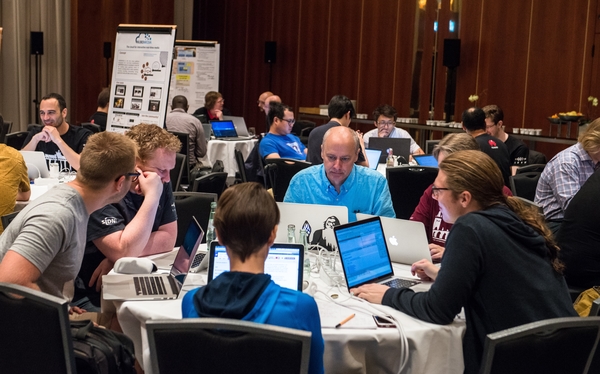
Additional information, including the list of registered projects and participants and all presentations are available via the hackathon wiki.
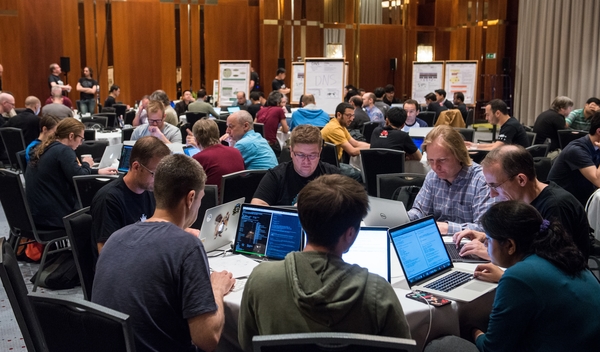
Plans are already underway for the IETF 97 Hackathon in Seoul, Korea, November 12-13. Additional information will be available soon at the main IETF Hackathon page - https://www.ietf.org/hackathon/.
Subscribe for the hackathon mailing list to remain up to date on the hackathon discussions, and share questions, comments, new project proposals, etc., at any time via the list or by contacting the IETF Hackathon chairs directly:
Images provided by StonehousePhotographic/InternetSociety
